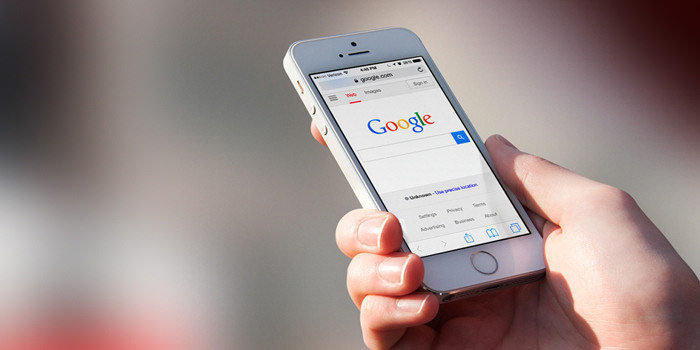Modern technologies have significantly expanded the possibilities of man. But their mass distribution also had negative consequences. Daily presence of various gadgets in human life can change people’s habits and even their identity.
 1. The echo chamber effect
1. The echo chamber effect
One may think that social media will become an effective tool to overcome the boundaries between various points of view, but it does not necessarily happen so. It often ends up with diametrically opposite results. The echo chamber effect means that the users from a group or community begin to send each other some message, often distorting its original meaning. As a result, the message is heard many times and is perceived as truthful; at the same time, nobody pays attention to really truthful information.
2. Screens contribute to obesity
Many factors have contributed to the increase in obesity in the United States. Therefore, it goes without saying that ubiquitous smartphones, tablet PCs, TVs, and game consoles can really play a role in maintaining a more sedentary lifestyle. A study, conducted by American Milken Institute, was focused on the problem of obesity in 27 countries. The results were startling – for every 10 percent increase in the amount of money the country spent for tech devices on average, the obesity rate in this country grew by 1 percent.
3. The Internet leads to poor concentration level
 According to a study, conducted by the Canadian research project and funded by the Microsoft corporation, the increasing distribution of digital mass media has led to an increasing reduction in the average attention span. More than 2,000 Canadians were tested twice with the help of EEG brain scans: in 2000, around the beginning of the mobile era, and in 2015. The results have shocked everyone: the average attention span has decreased from 12 to 8 seconds in just 15 years.
According to a study, conducted by the Canadian research project and funded by the Microsoft corporation, the increasing distribution of digital mass media has led to an increasing reduction in the average attention span. More than 2,000 Canadians were tested twice with the help of EEG brain scans: in 2000, around the beginning of the mobile era, and in 2015. The results have shocked everyone: the average attention span has decreased from 12 to 8 seconds in just 15 years.
4. Internet services often imply impatience multiplied by impulsivity
According to scientists, the increased popularity of YouTube and video streaming makes people more impatient: they do not want to wait long for anything, especially entertainment. UMass Amherst studied the habits of more than six million Internet users to determine how long the average viewer would wait for buffering videos. It turned out that after just two seconds the people closed the window with the video, if it kept buffering. More and more major retailers offer delivery services on the day of order, and mobile applications, helping to reduce waiting time for dinner reservations and taxis, are gaining popularity.
5. GPS is a threat to long-term memory
GPS has become a nearly indispensable aspect of everyday life. Many cannot even recall the last time they got to a place without a map. Researchers at McGill University have published the results of three studies, showing that excessive use of GPS can actually be detrimental to long-term memory in old age. This is because the hippocampus, a brain area that controls memory, is also linked to orientation in space. The researchers have found that the people, who mostly rely on their own ability to navigate in space rather than on GPS, have a greater amount of gray matter and an increased hippocampus activity.
6. The information flow makes IQ higher and brain thinner
 It’s pretty easy to imagine that the amount of information resources on the Internet may contribute to more creative thinking in general. But the opposite statement is also true, and the reasons are convincing. The researchers from John Hopkins University and the University of Illinois have recently conducted a study aimed at the way the abundance of information influences work and creativity and found that abundant information resources actually could lead to a decrease in creativity. At the same time, the average IQ level in humans has increased since 1990. Both effects are most pronounced among 5-10-year-old children.
It’s pretty easy to imagine that the amount of information resources on the Internet may contribute to more creative thinking in general. But the opposite statement is also true, and the reasons are convincing. The researchers from John Hopkins University and the University of Illinois have recently conducted a study aimed at the way the abundance of information influences work and creativity and found that abundant information resources actually could lead to a decrease in creativity. At the same time, the average IQ level in humans has increased since 1990. Both effects are most pronounced among 5-10-year-old children.
7. Smartphones are “light” killers of melatonin
The Time magazine conducted a survey of 4,700 people in 2012, and its results revealed that a lot of respondents agreed to the statement “I do not sleep as much as before because I am constantly online/in touch.” That is what a quarter of people aged 18-24 years had to admit. However, there is also a scientific reason why the use of smartphones before going to bed can be injurious to health. The brain normally receives the command to fall asleep and wake up based on the quality of the surrounding light. The “red” light, which can usually be seen during twilight, signals to the body that it is evening, while the “blue” morning light is a signal that it’s time to wake up. The “blue” light is produced by smartphones and tablet PCs; it suppresses melatonin, the chemical substance that promotes sleep.
8. Text processors are the enemy of non-verbal visual signals
Text messaging has become the main form of everyday communication for almost all people. Even older people prefer to send SMS messages rather than make phone calls. A new research suggests that text messages can gradually deprive people of the ability to read emotional signals of others. Such non-verbal visual signals are one of the most important components of any conversation, and some psychologists are concerned that the lack of verbal and non-verbal experience may cause serious damage to the social development of young people.
9. Google means no need to memorize
 Virtually any information can nowadays be obtained via a quick Google search, which is extremely beneficial and problematic at the same time. Researchers from Harvard and the University of Wisconsin claim the existence of the so-called “Google effect” in recent years – this trend applies to the Internet as a kind of external hard drive for the brain, which makes people memorize less information.
Virtually any information can nowadays be obtained via a quick Google search, which is extremely beneficial and problematic at the same time. Researchers from Harvard and the University of Wisconsin claim the existence of the so-called “Google effect” in recent years – this trend applies to the Internet as a kind of external hard drive for the brain, which makes people memorize less information.
10. Fake news leads to constant misinformation
Distribution of “fake news” websites caused a lot of criticism in 2016. These websites sometimes mimic real news and are even linked to real URLs. At the same time, they openly publish false stories in the pursuit of a higher number of clicks. One might think that you can easily recognize such fake stories, and they may not have a significant impact on people in the modern information age. However, a study conducted in 2015 at Stanford suggests a different effect. For example, 80 percent of the study participants could not distinguish between usual articles and advertising materials, crammed with sponsorship content.











